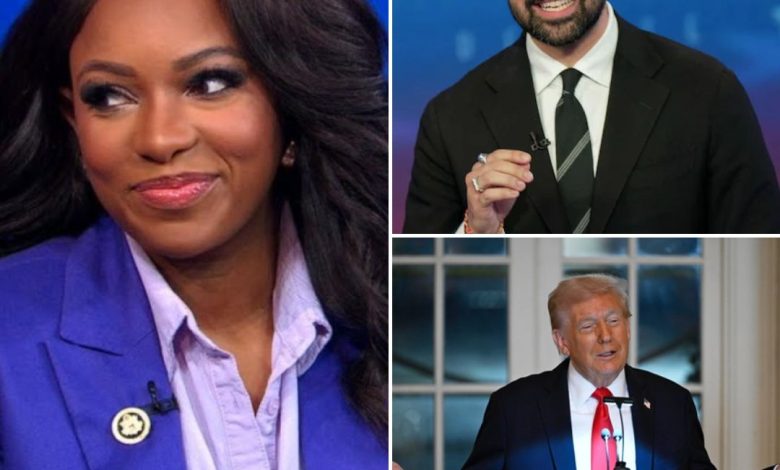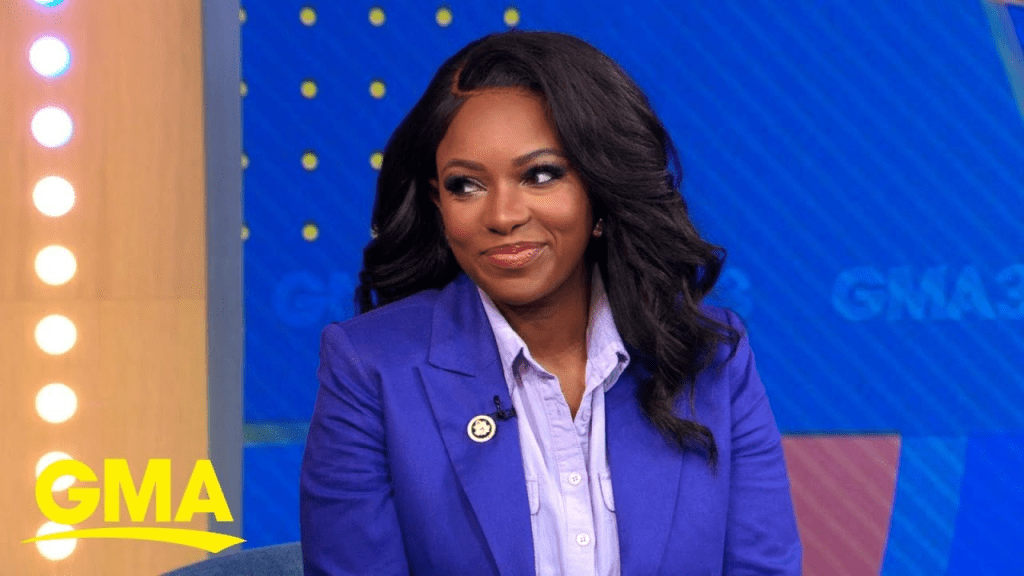How Trump’s MAGA movement is reshaping politicians worldwide—from Washington’s halls to foreign parliaments.NH

Why politicians everywhere are copying Trump’s Maga style
Analysts say the key to the president’s enormous following is his ‘unlikeable character’
The speakers are all New Yorkers, all women, and all black or Hispanic. It is no great surprise they each voted for Alexandria Ocasio-Cortez, the Democratic socialist member of Congress, last year.
“She’s like that sister that will always defend you,” says Roselyn in a focus group, explaining the appeal of the young, outspoken progressive campaigner who is tipped for big things in the Democratic Party.
“She’ll fight, she’ll scream till a bloody pulp if she had to. You know, she’s truly a fighter.”
And then comes the kicker: that part of a New York spirit that she shares with Donald Trump?
“Oh yes. So much so that they could be brother and sister,” says Roselyn, who lives in a New York district that not only elected hard-Left Ms Ocasio-Cortez – known as AOC – but also saw Mr Trump’s share of the vote surge by 11 points.
The four women, interviewed by JL Partners, cited immigration and the cost of living as two policy areas that were important to them.
At the same time, sheer star power was key to the candidates’ popular appeal.
“They’re very outspoken,” said Margaret. “They really have, I think, no filter.”
Whether by design or accident, it is just the latest example of how Democratic politicians are shaping the policy and style playbook developed by Mr Trump during his tumultuous 10 years in politics.

It has generated a wave of copycat leaders around the world and upended politics at home.
Nine months into his second presidency, Mr Trump is at what could be the pinnacle of his power. He is facing down Democratic opponents in Washington, where the federal government has been shut down, and has delivered a ceasefire and prisoner-swap deal in Gaza.
Where he was stymied and stalled by infighting, investigations and the courts during his first presidency, this time around he has rebuilt the administration in his own pugilistic image, staffed by the uber loyalists who rallied around him after his 2020 election defeat.
And where once Michelle Obama fired up supporters with the motto, “When they go low, we go high,” Democrats are increasingly relying on a different approach: If you can’t beat them, join them.
Gavin Newsom, the California governor and likely 2028 presidential contender, has adopted a more confrontational social media presence.
His office posted the below message, as it reacted to efforts to create more Republican congressional districts.
Followers have backed him with AI-generated memes, just like Mr Trump’s supporters have done. There are pictures of the governor riding a dinosaur, shirtless, firing pistols in the air, or receiving the Nobel Peace Prize, trolling the president’s aspiration.
In a similar vein, Jasmine Crockett, a congresswoman from Texas, was recently branded “A Democrat for the Trump era,” by The Atlantic.
When conservative rival Marjorie Taylor Greene ridiculed her lavish fake eyelashes during a committee hearing, Ms Crockett hit straight back. She blasted Ms Greene’s “bleach-blond, bad-built, butch body” in a clip that soon went viral.

And of course there is merchandise. She now sells B6 T-shirts from her “clap back collection” for $25.
On another occasion, she deployed a Trumpian nickname. She called Greg Abbott, the Texas governor who uses a wheelchair, as “Governor Hot Wheels”.
Poll after poll has suggested that Democrats, rocked by losing both houses of Congress and the White House, are hungry for strong leadership.
Their model is built around economic populism, complete with tariffs and an industrial policy, and an appetite for publicly shaming corporations, free markets and billionaires.
Zohran Mamdani, the Democratic socialist who is odds-on to be the next New York mayor in a few weeks, has propelled himself from an outlier to frontrunner by leaning into this new flavour of politics.
This time last year nobody had heard of the 33-year-old, but through a combination of slick social media videos and pithy campaign promises Mr Mamdani defied the polls and trounced Andrew Cuomo in the Democratic primary.
So impressive was his ability to use tools like TikTok to connect with voters, he won praise from Republican loyalists including Tucker Carlson and Mrs Taylor Greene.
Like Mr Trump, Mr Mamdani positioned himself as the outsider, the anti-establishment candidate, an image that only grew as billionaire donors and the US president coalesced around Mr Cuomo after he re-entered the race as an independent.
In this week’s mayoral debate Mr Mamdani painted himself as the only candidate willing to stand up to Mr Trump, emulating some of the Republican leader’s fighting talk.
Calling his opponent Mr Cuomo a “puppet”, Mr Mamdani vowed that if Mr Trump continued to verbally attack New York, “he’s going to have to get through me as the next mayor of the city”.

The parallels are striking, according to Susan Del Percio, a Republican strategist in New York who was critical of the Trump campaign.
“He is running on a populist economic theme, certainly, but it is also one of personality, of strong personality that is totally focused on winning but not too concerned about whether or not you can deliver, because winning is what matters,” she said.
The style is a marked shift from the sort of measured, consultative approaches favoured by traditional corporate management models, according to leadership expert Laura Bouttell, the managing director of Quarterdeck.
Instead she called it “personality as strategy”.
“It’s very interesting because despite being an unlikeable character in many ways, he creates an enormous following,” she said. “He’s got huge charisma. He is incredibly self serving, but he also manages to get a big, loyal following.”
In a recent analysis, she set out the three main aspects of his personality identified by psychologists and how they could be helpful.
His “ambitious and self-serving” side can be seen as an unshakeable confidence that inspires people around him to push on despite, for example, market uncertainty.
His “dominant and controlling” side is well-suited to crises, delivering quick decisions and clear messaging, even if it can also mean autocratic behaviour and ill-considered outcomes.
And his “outgoing and gregarious” side is seen in an informal, dynamic and at times grandiose style that helps him connect with audiences in ways that other leaders cannot match.
She told The Telegraph it was a style well-suited to the US in the short-term but is less sustainable in the longer term.
“I think those ambitious, self-serving and dominant controlling behaviours, they’re only working for him at the moment because of the context that America finds itself in,” she said, referencing global uncertainty, conflict in Ukraine and the Middle East, and domestic tension.
Mr Trump’s influence around the world was on display at the White House this week when he entertained Javier Milei, his Argentinian counterpart on Wednesday.
“It’s a great honour to have the leader of Argentina… he’s Maga all the way, it’s ‘Make Argentina Great Again,’” said Mr Trump as he sat across the table from the Argentinian president in the Cabinet Room.
“I think he’s really on the verge of tremendous economic success.”
In recent years, Right-wing leaders across the world have been emulating Mr Trump’s success.
Politicians once dismissed as outsiders have seen their embrace of the Republican leader’s brand of politics translate into votes.
Japan’s far-Right Sanseito party had a resounding success in this year’s election.
After campaigning on a nationalist “Japan First” platform and warning of a “silent invasion of foreigners” the party went from holding one to 15 seats in the 248-seat chamber.
Launched in 2020 during the Covid pandemic, the party began by spreading conspiracy theories about vaccinations on YouTube but broke into mainstream politics this year.
‘Bold political style’
Sohei Kamiya, Sanseito’s leader, previously said he had drawn inspiration from Mr Trump’s “bold political style”. The party now has an international arm which is trying to woo allies in Mr Trump’s orbit such as Steve Bannon.
Days before he was assassinated in Utah, Charlie Kirk attended an event hosted by Sanseito in Tokyo and Mr Kamiya had been in talks to appear at Kirk’s AmericaFest conference.
In 2022 Giorgia Meloni swept to power after her hard-Right Brothers of Italy party transformed from a fringe movement to winning 26 per cent of the vote.
Her campaign promise to establish a naval blockade across the Mediterranean Sea to prevent migrants reaching Italy echoed the sentiment of Mr Trump’s wall to keep migrants from crossing the US border with Mexico.
The first female prime minister of Italy is regarded as one of Europe’s top Trump whisperers.
During his visit to Egypt last week Mr Trump turned to Ms Meloni, called her “beautiful” and later praised her as “an inspiration to all”.
In the UK, Nigel Farage’s hardline immigration stance and pledge to “make Britain great again” has seen him flip the applecart of national politics with Reform UK.
Once written off as a fringe party, Reform, which currently holds four parliamentary seats, has for months been polling ahead of both Labour and the Conservatives.
Mr Farage has for years boasted of his friendship with Mr Trump, having attended his election party in Mar-a-Lago and appeared at rallies. Testifying to Congress about free speech in Britain last month Mr Farage described the US president as a figure he “greatly admired”.
Arguably, nobody has charted Mr Trump’s political trajectory more closely than Jair Bolsonaro in Brazil, who mimicked the Republican’s meteoric political rise, fall and conviction.

The far-Right politician won a resounding victory in 2018 despite lacking the political machinery of his opponents by running as an outsider bent on smashing what he claimed was a corrupt political system.
He used social media to promote his fiery rhetoric, often using slurs against minorities, thrilling his followers who viewed him as an authentic straight shooter.
After losing the next election, Bolsonaro refused to concede to his opponent Lula da Silva and last month was sentenced 27 years in prison after being found guilty of plotting a military coup.
Foreign leaders, or at least their advisers, sat up and took notice of Mr Trump’s direct communications style during his first presidency.
Both his “Twitter diplomacy” and his habit of directly appealing to his audience to shape debates were groundbreaking innovations, according to a former No 10 strategist who worked for Theresa May.
“When I was in Downing Street during Trump 1.0, we were trying to do direct to camera messages. And I think people had done formal, say, Easter messages and so on, but no one had thought to do it with messages shaping the agenda.”
Polls indicated that the media were even less trusted than politicians, he added, so it made sense to go straight to voters.
But while Mr Trump’s 2016 victory helped usher in a wave of Right-wing populism, the nationalist movement that has taken shape in Europe over the past decade was gaining ground before the Republican’s defeat of Hillary Clinton.
It was three years earlier that David Cameron attempted to appease Eurosceptics by promising a referendum on Britain’s membership of the European Union.
The UK voted for Brexit in June 2016, five months before Mr Trump was elected.
Recommended
While some Right-wing figures have seen their popularity swell in the wake of Mr Trump’s political success, some Left-wing politicians have won key elections in a rejection of Trumpism.
In Canada, Mark Carney beat his Conservative Party opponent Pierre Poilievre in what was largely seen as a referendum on which politician could best protect the country from Mr Trump’s ambitions to turn it into the 51st state.
In Australia, Anthony Albanese’s centre-Left government was re-elected in May after voters rejected his conservative rival Peter Dutton, who was branded a “Temu Trump” for a campaign that hinged on migration.
And in the UK, Sir Keir Starmer became the first Labour leader to win an election since Tony Blair with a landslide victory over Rishi Sunak.
As a moderate centrist, the Labour Prime Minister has little in common with Mr Trump. He looked deeply uncomfortable when he sat beside the president at his Scottish golf course and was lectured on how to win the next UK election with policies of halting immigration, abandoning wind power and cutting taxes.
Yet, Sir Keir has adopted elements of the American president’s communications style at times.
He promised to “build baby build” as he announced plans to make it easier to construct mini nuclear power stations in England and Wales – a play on the president’s “drill baby drill” oil policy.
And when he visited the White House in February, he delivered the sort of hyperbole and theatrics that is out of keeping with his usual middle-of-the-road lawyerly manner.
“This is really special,” he said after presenting the president with an invitation from the King for a second state visit.
“This has never happened before. This is unprecedented.”





